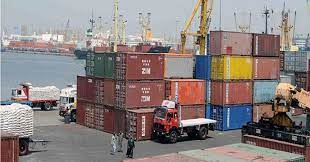More than 24 thousand import and export companies
10-January-2024
Damascus – Reem Rabie
Competition, in all its broad scopes, remains the most prominent focus of controversy between the private sector and the government, as the first party, along with economic experts and professors, considers that the “complex” legislation and conditions issued, or even the corruption of some executive authorities, has reduced the competition factor to a minimum, which It has had a negative impact – and continues to do so – on the reality of abundance, prices, and freedom of commercial, industrial, and craft work, while the government, through the relevant ministries, emphasizes opening the door to competition and work to everyone who wants “without transgressions,” considering that it has created a legal environment that allows competition for all.
Perhaps the largest area in talking about competition is related to importing, as many importers believe that the complexities and many conditions for importing, including the platform, have reduced the competitive factor and put most small importers out of work, leaving only those with high financial solvency, and importing – as they put it – to be limited to names. Only specifically, so that the Ministry of Internal Trade and Consumer Protection here confirms the inaccuracy of this statement, as there are approximately 25,000 import companies registered in the ministry, and anyone who presents the necessary papers is allowed to import. In Damascus, 4,548 companies were registered for the purpose of importing and exporting, and in its countryside, 4,711 and 3,510. Companies in Hama, 3,660 companies in Aleppo, 3,315 in Latakia, 2,324 companies in Tartous, 207 in the industrial cities of Hassia and Sheikh Najjar, and 2,586 companies in the rest of the governorates, bringing the total to 24,861 companies.
The Ministry explained that its role is limited to establishing companies and granting individual records to practice all commercial and economic activities, according to the Unified Industrial Economic Classification Guide, taking into account the need for the concerned parties to obtain the necessary approvals and licenses to practice their activities from the relevant authorities, including import and export activity, while emphasizing that Import licenses are granted and supervised by the Ministry of Economy in accordance with its approved instructions.
In turn, Director of the Competition and Monopoly Prevention Authority, Jalil Ibrahim, confirmed to “Al-Baath” that no cases of monopolistic practices have currently been registered in the markets, as there is multiplicity and diversity in manufacturing, production and import, in terms of securing all materials in the Syrian market, and no particular merchant, company or institution is unique. By importing, manufacturing or producing any material exclusively or individually. On the contrary, all materials of different types, brands and shapes are available in the markets. In the event that any information arrives regarding the monopoly of goods, the supply patrols in the relevant area go to control the situation, confiscate the goods and distribute them to the markets, with the violator being fined. . He added that the Authority works to spread, protect and encourage the culture of competition, seek information to uncover practices that violate competition rules, cooperate with similar bodies outside Syria for the purposes of exchanging information and data, and prepare periodic analytical studies on market indicators and prices, and predict their future movements, demand and supply gaps and prices to be presented to the public. The Ministry, to evaluate it and take the necessary measures regarding it.

